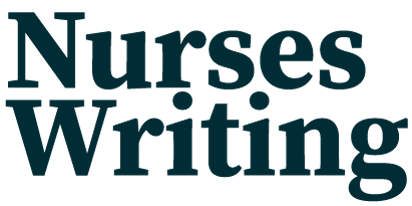Nurse Educator Role: Teaching
NHS FPX 6103 The History of Nursing Education Assessment 2 Applying the Tripartite Model KP
Teaching is one of the most significant roles of nurse educators. In this role, besides caring for patients, nurse educators who are passionate about teaching dedicate their time to teaching and advocating for nurses (Bullin, 2018). They instruct aspiring nurses in practical educational settings and guide them towards becoming practical nurses. This nurse educator role is nursing teachers, where the role players instruct and guide other nurses towards their nursing profession (Bullin, 2018). The contexts where this role applies in universities, colleges, and research hospitals. Besides teaching in these settings, nursing teachers also care for patients.
The teaching, service, and scholarship expectations for a Nursing Teacher
Teaching and learning are significant in all faculties and for all new educators. However, although teaching is a responsibility in nursing, it is not the only focus for nursing educators. However, nurse educators who take the teaching role must develop it with experience, time, and knowledge (Evans, 2018). Each nursing teacher creates their unique teaching style influenced by pedagogies, individual beliefs, learners’ styles, and philosophies in their academic institutions. It is important for all nursing educator to improve their educational teaching skills for nursing (Herrman, 2019). Concerning service, it is a way of giving time and energy to the community. Nursing teachers can offer their services through serving in nursing school committees, speaking at local events, becoming board and advisory members, and mentoring new faculty. Lastly, they must engage in research to serve their scholarship expectations (Bullin, 2018). They can do this by obtaining grants, publishing material, presenting scholarly work, and consulting.
NHS FPX 6103 The History of Nursing Education Assessment 2 Applying the Tripartite Model KP
Publications, Journals, and Conferences that Could be a Fit for the Scholarship of Nursing Teachers
Various platforms support the development of nursing educators and nursing education as a field in nursing. Nursing teachers also find support from various academic professions and platforms. They can use journals like the Journal of Professional Nursing, Nurse Education Today, Journal of Nursing Education, and Teaching and Learning in Nursing (Chang et al., 2018). They could also participate in conferences such as Nursing Advancement Professionals (NAP) Conference, Graduate Nursing Admissions Professional (GNAP) Conference, and CNL Summit. The scholarships created for education in nursing include the creation of teaching plans and assessing methods, knowledge of education-learning theories, role modeling, and program development.
A Plan for Nurse Teachers to Meet their Roles
Indeed, being a nursing teacher is a challenging and demanding role as it prepares individuals to become future nurses. Hence, there is a significant need to be prepared to practice the role and meet all expectations of a nursing teacher. First, it is vital to loving the role. Having a passion for teaching nurses and a desire to make a difference goes a long way in helping nurse teachers to deliver their duties. Secondly, a nurse teacher must possess various elements, including academic knowledge, clinical experience, and excellent communication skills (Reising et al., 2018). Lastly, they must address the needs of their role by addressing various learning styles and establishing innovative ways to deliver content to their students.
Additional qualifications
Although nursing teachers or educators generally do not need certifications, having them is an added advantage. Hence, nurse educators could have certifications like Certified Clinical Research Associate (CCRA) and Certified Clinical Research Coordinator (CCRC) (Meldrum, 2020). Having these certifications can help nurse educators to climb the radar in their profession by attaining coveted positions in nursing education.
Qualifications and Areas of Expertise Related to Teaching in Nursing
For nursing teachers to serve as change agents in their field, they must have several qualifications and expertise. These may include leadership, professionalism, interpersonal skills, and core competencies (Herrman, 2019). These qualifications ate vital because nurse educators deal with people, and they must interact significantly with them for their instructions to be practical.
Bullin, C. (2018). Doctoral education supported hypothetical nurse in their teaching roles: BMC nursing, 17(1), 1-18. (“[Solved] What is the value of a master’s degree in nursing …”) https://bmcnurs.biomedcentral.com/articles/10.1186/s12912-018-0273-
Chang, C. Y., Lai, C. L., & Hwang, G. J. (2018). The Trends of mobile learning styles studies in nursing education. Computers & Education, 116, 28-48. (“Chiu-Lin, Lai – Google Scholar”) https://www.sciencedirect.com/science/article/pii/S0360131517301999
Evans, J. D. (2018). Why I am a nurse educators: Nursing education outlook perspectives, 39(2), 61-65. (“Why We Became Nurse Educators (Journal Club) – Nursing …”) https://journals.lww.com/neponline/FullText/2018/03000/Why_We_Became_Nurse_Educators__Findings_From_a.3.aspx
NHS FPX 6103 The History of Nursing Education Assessment 2 Applying the Tripartite Model KP
Herrman, J. W. (2019). Creative teaching strategies for the nurse educator. FA Davis. https://books.google.com/books?hl=en&lr=&id=jjHEDwAAQBAJ&oi=fnd&pg=PR1&dq=teaching+as+a+nurse+educator+role&ots=dEhHD7nbRX&sig=oWVsWBY2Hn3FdG9paEGpsLkqfqI
Meldrum, C. A. (2020). Qualifications of the Research Staff. Principles and Practice of Clinical Trials, 1-11. https://link.springer.com/content/pdf/10.1007/978-3-319-52677-5_283-1.pdf
Reising, D. L., James, B., & Morse, B. (2018). The clinical instructor characteristics affecting clinical practices. Nursing teaching perspectives, 39(1), 4-9. https://journals.lww.com/neponline/fulltext/2018/01000/Student_Perceptions_of_Clinical_Instructor.3.aspx

